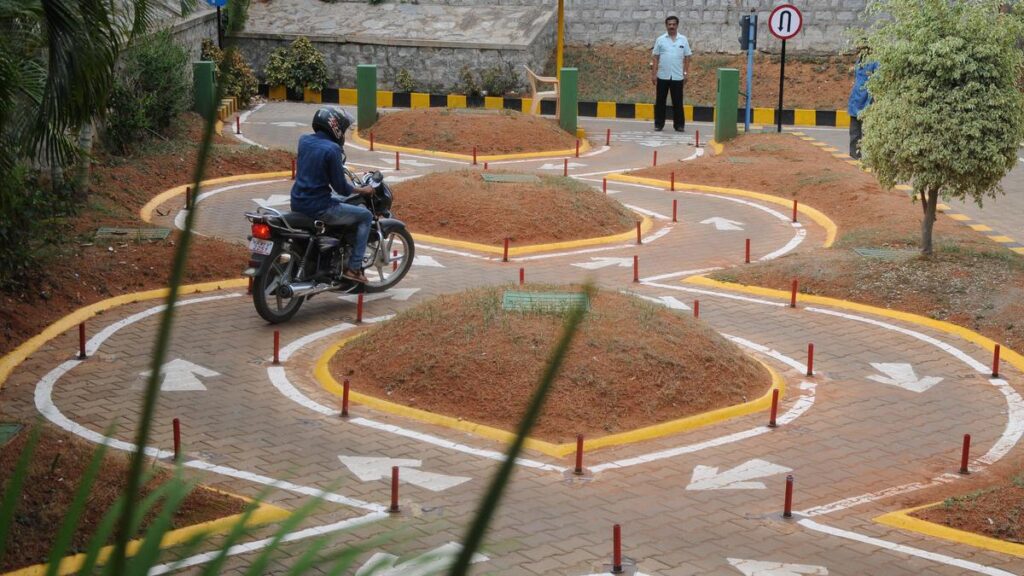Introduction
In 2024, significant changes are being implemented in obtaining a new driving license. These updates aim to enhance road safety, streamline the application process, and incorporate technological advancements. Aspiring drivers will now encounter revised testing protocols, updated educational requirements, and a more efficient system for application and renewal.
Driving examinations at RTO are now optional under New Driving License Rules and regulations in India. In India, obtaining a driver’s license is lengthy and requires the applicant to visit several authorities and fill out multiple papers. The protracted and complicated procedure of obtaining a driver’s license also makes it easier for unethical practices to flourish, eventually impacting India’s road safety. So, to combat this issue New Driving License Rules have been issued in India. Read the article below to learn more about New Driving License Rules in India.
All You Need to Know
No RTO driving test is required
One of the most notable changes is that applicants no longer need to take a driving test at the Regional Transport Office (RTO). Instead, the driving test can be conducted at accredited private driving schools. If the applicant passes the test at these schools, they will receive a certificate, which can be used to apply for a driving license without undergoing further testing at the RTO. The Centre will issue certificates to private players authorizing them to conduct the driving test. However, without a certificate from an accredited school, the candidate will have to appear for a driving test at an RTO.
Stricter Penalties
Driving a car without a valid driving license now incurs a penalty that can go as high as ₹2,000. Severe punishments for minors driving include a ₹25,000 fine, potential action against the parents, and the cancellation of the vehicle’s registration certificate.
Eco-friendly initiatives
The Ministry is implementing eco-friendly initiatives to reduce vehicular pollution and promote adopting electric vehicles (EVs). This includes phasing out 9,000 outdated government vehicles and raising emission standards for other vehicles as part of a broader effort to address environmental concerns.
Procedure unchanged
The procedure for applying for a driver’s license remains unchanged. The Ministry, however, has simplified the paperwork required for obtaining a new driving license. Applicants now need fewer documents, which vary depending on whether they are applying for a two-wheeler or four-wheeler license, reducing the need for physical checkups at RTOs.
Revised fee structure
Under the new revised driving rules 2024, Learner’s license will cost ₹200, A learner’s license renewal will cost ₹200, an International license ₹1000, a Permanent license ₹200, a Permanent license renewal ₹200, and the cost of issuing of renewed driver’s license ₹200.
Phasing out of old vehicles
It is important to note that the new rules have tried hard to focus on the environment. As per the new regulation, over 900,000 old vehicles will be phased out. Moreover, people are going to witness stricter regulations on emissions by cars.

Online Services and Digital Initiatives
The Ministry has simplified the driving license application form to improve the ease of licensing. Four forms i.e. (a) Learner License, (b) Driving License, (c) Renewal of License, and (d) updation of Address – all have been consolidated into one. The new form will enable Aadhar-based verification of the applicant’s identity to provide online services for renewal, change of address, etc.
The Ministry of Road Transport & Highways has been facilitating the computerization of more than 1000 Road Transport Offices (RTOs) nationwide. RTOs issue Registration Certificate (RC) & Driving Licence (DL) that are valid across the country. It was necessary to define the same standards for these documents on a pan-India level to ensure interoperability correctness and timely availability of information. COSTA committee setup for this purpose had recommended uniform standardized software nationwide. The VAHAN & SARATHI are conceptualized to capture the functionalities as mandated by the Central Motor Vehicle Act, 1988 as well as State motor vehicle Rules with customization in the core product to suit the requirements of 36 States.
Challenges of Outdated Driving License Rules
India’s old driving license rules and regulations had several drawbacks that impacted road safety, administrative efficiency, and overall effectiveness. Here are some key issues:
Lax Testing Procedures: The testing process for obtaining a driving license could have been improved. Many applicants could only get licenses by demonstrating sufficient driving skills or knowledge of traffic rules, leading to poorly trained drivers on the road.
Corruption and Bribery: The system was plagued by corruption, with many people obtaining licenses through bribery rather than merit. This undermined the integrity of the licensing process and allowed unqualified drivers to operate vehicles.
Inefficient Administrative Processes: The procedures for applying, renewing, or updating driving licenses were often cumbersome and time-consuming. Long wait times and bureaucratic hurdles made the process inconvenient for citizens.
Poor Record Keeping and Data Management: The lack of a centralized and digitized database led to issues in tracking and managing driver information. This made monitoring violations, enforcing penalties, and ensuring accountability difficult.
Inconsistent Implementation: Different states had varying standards and practices for issuing licenses, leading to inconsistencies in the quality and rigor of the licensing process across the country.
Inadequate Emphasis on Road Safety Education: The old system did not sufficiently emphasize road safety education and awareness. Many drivers need to gain basic knowledge of traffic signs, rules, and safe driving practices.
Overburdened Licensing Authorities: Licensing authorities were often overburdened with applications, leading to rushed processes and insufficient scrutiny of applicants.
Conclusion
In conclusion, the new driving license rules implemented in India in 2024 signify a significant step towards enhancing road safety and accountability among drivers. By introducing stricter criteria for obtaining a driving license, including more comprehensive testing procedures and a focus on theoretical knowledge and practical skills, the aim is to cultivate a culture of responsible driving from the outset. Additionally, the emphasis on periodic license renewal and mandatory training courses for license renewal applicants ensures that drivers remain updated on road regulations and safety measures throughout their driving tenure.
These regulations are not merely bureaucratic hurdles but essential measures to reduce the alarming rates of road accidents and fatalities in the country. By prioritizing competence and awareness among drivers, the new rules seek to mitigate risks on Indian roads and foster a safer environment for all road users. However, effective implementation and enforcement will be crucial to realizing the intended benefits of these regulations. Ultimately, while the transition to these new rules may pose initial challenges, their long-term impact holds the promise of safer roads and a more responsible driving culture in the nation.
-BHAWNA SINGH
MUST READ:- POWERPLAY: INDIA’S STRATEGIC ALLIANCES IN THE QUAD VS. SQUAD DYNAMICS





